
Bristol: A Blend of History, Culture, and Innovation
Nestled in the southwest of England, Bristol is a city that seamlessly blends its rich historical heritage with a vibrant modern culture. Known for its impressive architecture, the city is home to the iconic Clifton Suspension Bridge, a masterpiece designed by the engineering genius Isambard Kingdom Brunel. As you wander through the city, you'll discover a tapestry of Georgian and Victorian buildings, each telling a story of Bristol's past. Bristol isn't just about the past; it's a hub of creativity and innovation. The city boasts a thriving arts scene, with numerous galleries, theaters, and music venues. The Arnolfini, a leading center for contemporary arts, and the Bristol Old Vic, the oldest continuously working theater in the English-speaking world, are must-visits. Street art enthusiasts will be thrilled by the works of Banksy, who hails from Bristol, scattered across the city. The city's maritime history is brought to life at the Harbourside, where you can explore the SS Great Britain, another of Brunel's masterpieces. This area is also a hotspot for dining and entertainment, with a plethora of restaurants, bars, and cafes offering a taste of local and international cuisine. For a unique experience, take a boat tour along the River Avon and enjoy the picturesque views of the city from the water.
Local tips in Bristol
- Visit the Clifton Suspension Bridge at sunset for stunning views and great photo opportunities.
- Explore the Harbourside on foot or by renting a bicycle to fully appreciate its charm.
- Check out the street art in Stokes Croft for a taste of Bristol's edgy and creative spirit.
- Book tickets in advance for popular attractions like the SS Great Britain and Bristol Zoo Gardens.
- Try a local cider at one of the traditional pubs; Bristol is famous for its cider production.
Neighbourhoods in Bristol
Bristol: A Blend of History, Culture, and Innovation
Nestled in the southwest of England, Bristol is a city that seamlessly blends its rich historical heritage with a vibrant modern culture. Known for its impressive architecture, the city is home to the iconic Clifton Suspension Bridge, a masterpiece designed by the engineering genius Isambard Kingdom Brunel. As you wander through the city, you'll discover a tapestry of Georgian and Victorian buildings, each telling a story of Bristol's past. Bristol isn't just about the past; it's a hub of creativity and innovation. The city boasts a thriving arts scene, with numerous galleries, theaters, and music venues. The Arnolfini, a leading center for contemporary arts, and the Bristol Old Vic, the oldest continuously working theater in the English-speaking world, are must-visits. Street art enthusiasts will be thrilled by the works of Banksy, who hails from Bristol, scattered across the city. The city's maritime history is brought to life at the Harbourside, where you can explore the SS Great Britain, another of Brunel's masterpieces. This area is also a hotspot for dining and entertainment, with a plethora of restaurants, bars, and cafes offering a taste of local and international cuisine. For a unique experience, take a boat tour along the River Avon and enjoy the picturesque views of the city from the water.
When is the best time to go to Bristol?
Iconic landmarks you can’t miss
Bristol Cathedral
Discover nearly 900 years of history, stunning Gothic architecture, and serene sanctuary at Bristol Cathedral in the heart of Bristol.
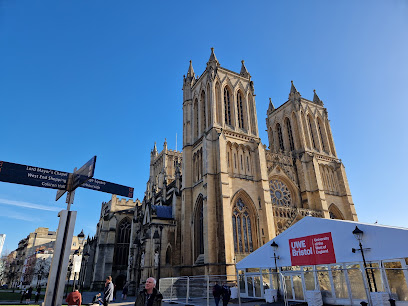
Cabot Tower
Historic Cabot Tower atop Bristol’s oldest park offers panoramic city views and a serene nature escape in the heart of Brandon Hill.
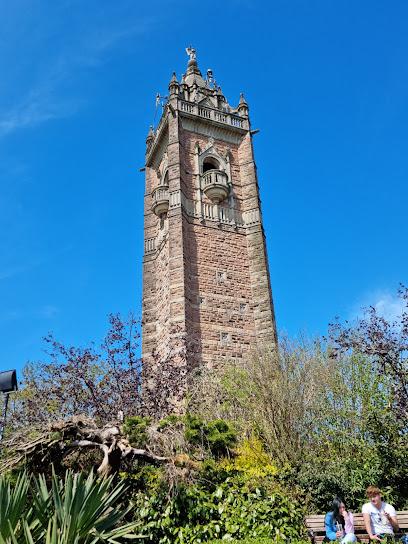
St Mary Redcliffe Church
Medieval Gothic masterpiece and eight centuries of Bristol's maritime heritage in stone
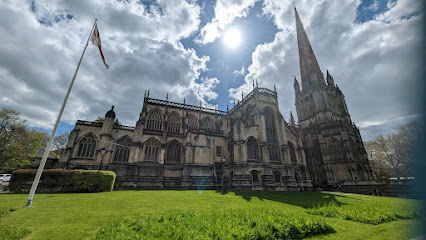
Glastonbury Tor
Where legend, history, and spirituality converge on Somerset's most iconic hilltop.
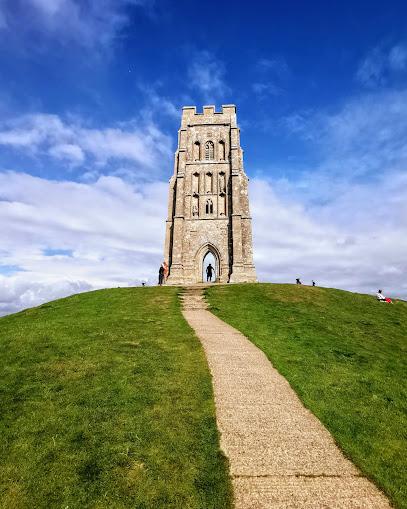
Nunney Castle
A French-influenced medieval fortress where a Hundred Years' War veteran built his legacy in stone.
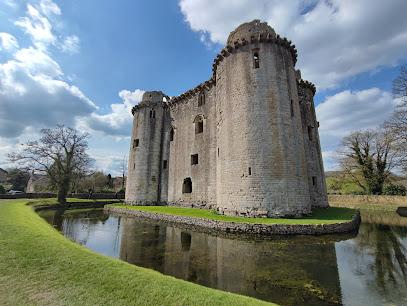
Pero's Bridge
A striking pedestrian bridge honoring an enslaved man's memory and Bristol's complex past with the slave trade.
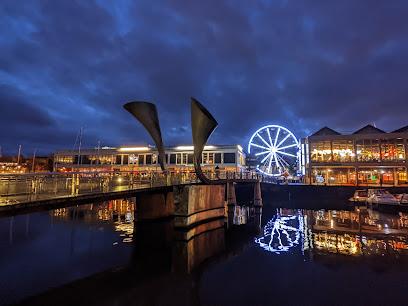
St Peter's Church
Haunting ruins of St Peter’s Church in Bristol’s Castle Park, a poignant memorial to the victims of the WWII Bristol Blitz.
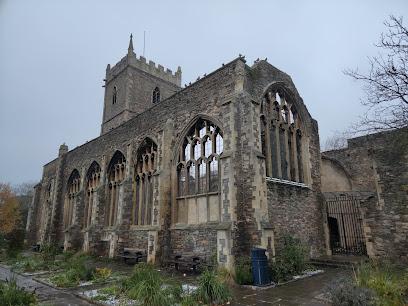
The Georgian House Museum
Step back into 18th-century Bristol life at the Georgian House Museum, a beautifully restored townhouse revealing the era’s elegance and social contrasts.
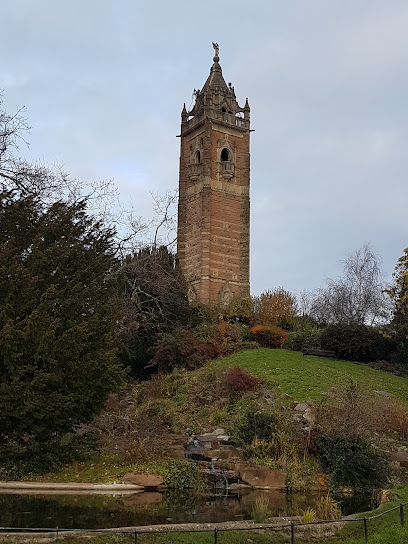
Wills Memorial Building Tower
Climb Bristol's iconic 68-metre tower for breathtaking city views and explore a masterpiece of Neo-Gothic architecture.
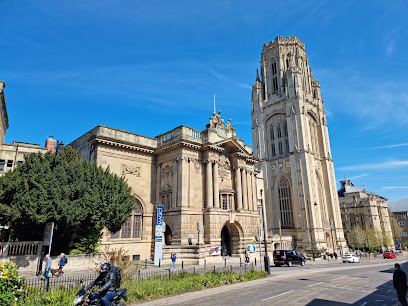
Temple Church
Explore the evocative ruins and leaning tower of Bristol’s medieval Temple Church, a testament to the Knights Templar’s enduring legacy.
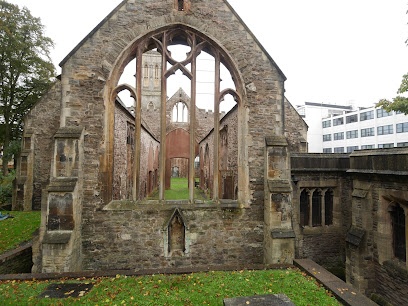
St Margaret's Chapel
Medieval sanctuary where pilgrims once found healing, now a peaceful retreat for prayer and artistic creation.
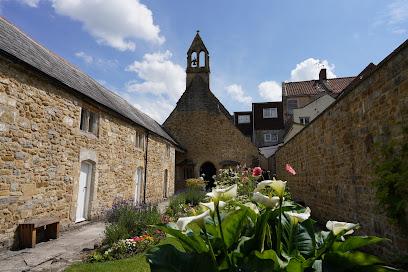
John Batchelor Statue
A striking Victorian statue in Cardiff honoring John Batchelor, the fearless Liberal reformer known as the 'Friend of Freedom'.
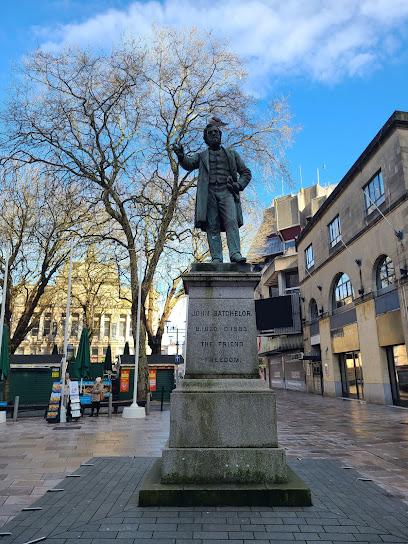
Pulteney weir
One of the world’s rare shop-lined bridges, Pulteney Bridge is a Georgian masterpiece spanning the River Avon in the heart of Bath.
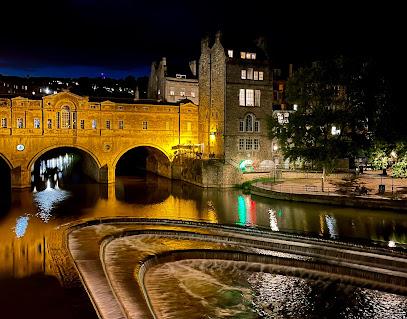
Tommy Cooper Statue
A bronze monument to the fez-wearing magician who made millions laugh with tricks that went beautifully wrong.
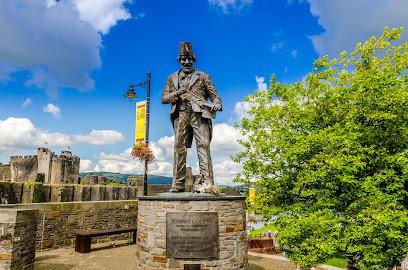
Prince Street Bridge
A working Victorian swing bridge over Bristol’s Floating Harbour, connecting the city centre with the Cumberland Road area and offering quiet views of boats and quays.
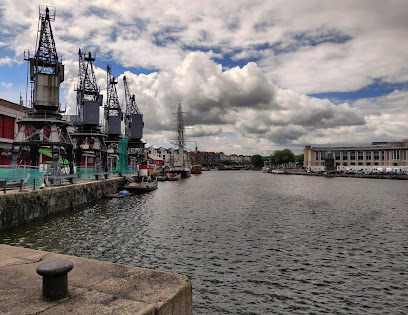
Unmissable attractions to see
The Roman Baths
Step back 2,000 years at Bath’s iconic Roman Baths, where ancient hot springs and history converge in a captivating cultural experience.
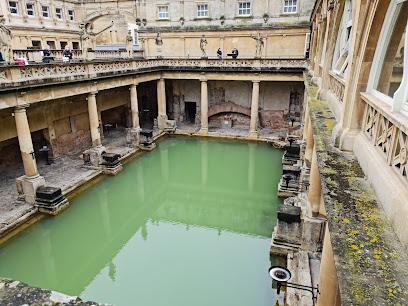
Longleat
Discover the tranquil beauty and family fun of Longleat Forest, a woodland retreat with luxury lodges, giant redwoods, and endless activities in Wiltshire.
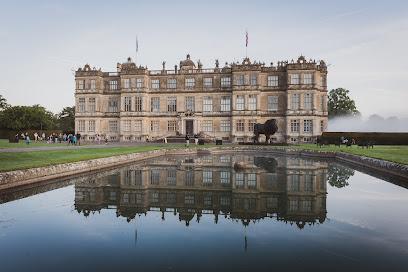
St David’s Dewi Sant
Cardiff’s largest shopping centre with over 160 shops, dining, and entertainment all under one roof in the city centre.
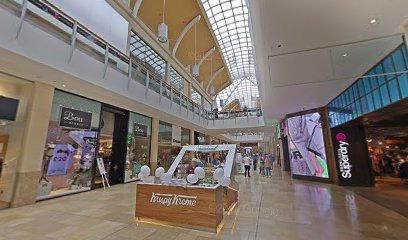
Clifton Suspension Bridge
Bristol’s iconic Victorian suspension bridge offering breathtaking views, rich history, and immersive tours in a stunning natural setting.
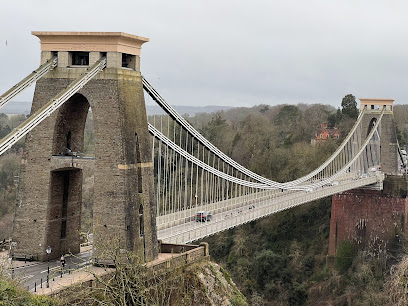
Principality Stadium
Wales’ national stadium with a retractable roof, iconic rugby heritage, and world-class events in the heart of Cardiff.
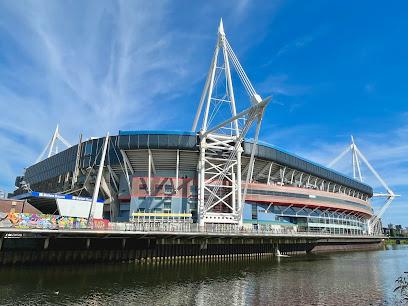
Cabot Circus
Experience Bristol’s vibrant shopping and leisure hub beneath a stunning glass roof blending indoor comfort with outdoor freshness.
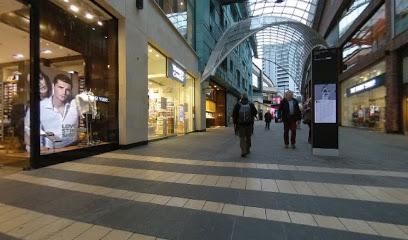
Bristol Shopping Quarter
Explore over 400 shops, vibrant dining, and historic charm in Bristol’s dynamic city-centre shopping quarter.
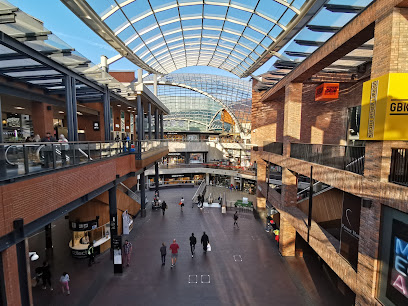
St. Fagans National Museum of History
Explore Wales’ rich history through authentic buildings, crafts, and landscapes at St Fagans National Museum of History, Cardiff’s premier heritage attraction.
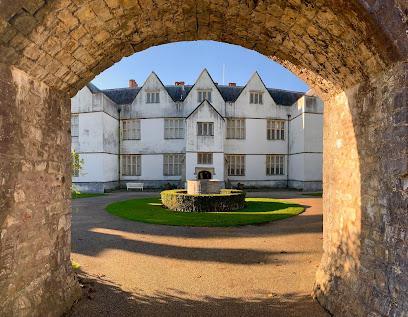
National Museum Cardiff
Explore Wales’s rich heritage through world-class art, natural history, and archaeology at National Museum Cardiff, a cultural gem in the city centre.
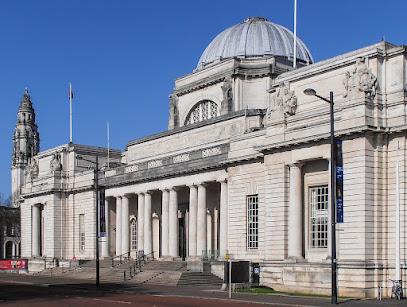
Brunel's SS Great Britain
Step aboard Brunel's SS Great Britain, the pioneering ocean liner that reshaped maritime history and Victorian life at sea in Bristol’s historic dockyard.
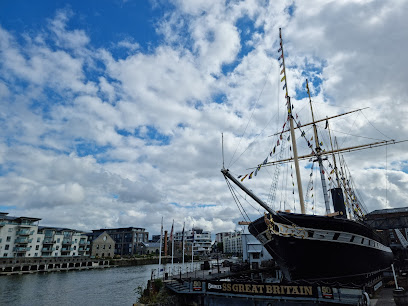
Cheddar Gorge and Caves
Explore England’s largest gorge with stunning cliffs, ancient caves, thrilling climbs, and rich prehistoric heritage in scenic Somerset.
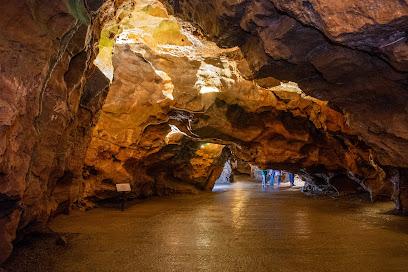
Thermae Bath Spa
Experience Britain’s only natural thermal spa with stunning rooftop pools, historic waters, and luxurious wellness treatments in the heart of Bath.
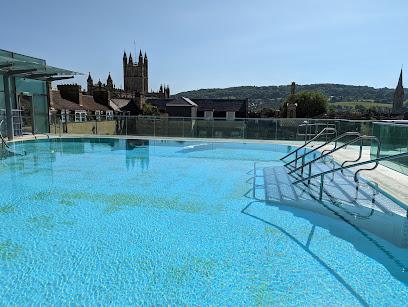
Pulteney Bridge
An 18th-century Palladian masterpiece with shops spanning both sides, linking Bath’s historic heart to the charming Bathwick estate.
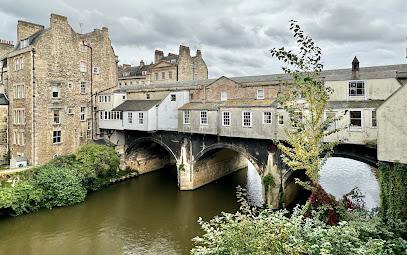
St Nicholas Market
Discover Bristol’s historic St Nicholas Market, a vibrant hub of independent shops, street food, and seasonal festivities in a stunning Georgian setting.
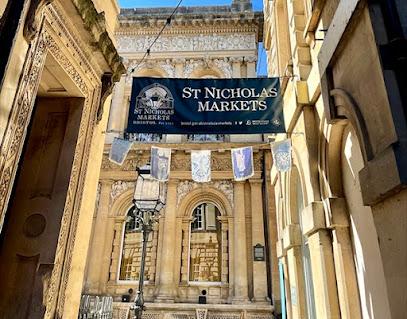
Royal Victoria Park Bath
Historic 57-acre urban park in Bath with botanical gardens, playgrounds, tennis courts, and seasonal events beneath the iconic Royal Crescent.
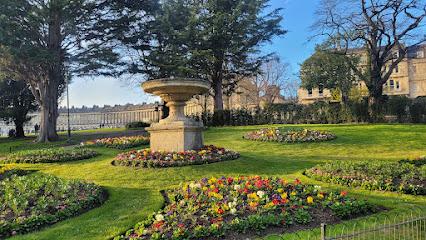
Essential places to dine
Turtle Bay Bristol Broad Quay
Experience authentic Caribbean cuisine, tropical cocktails, and lively reggae vibes in Bristol’s vibrant Broad Quay district.
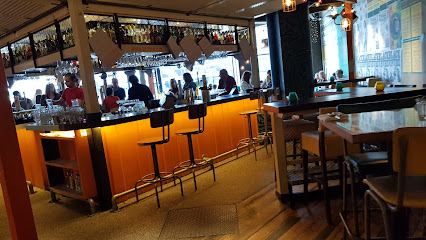
Sally Lunn’s Historic Eating House & Museum
Discover Bath’s oldest house where history and the famous Sally Lunn bun come together in a unique dining and museum experience.
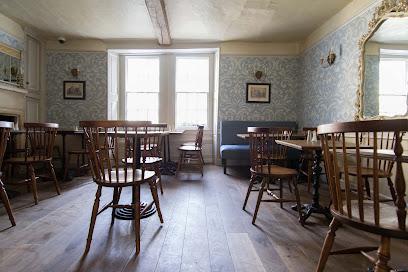
Three Brothers Burgers
Waterfront burgers of genuine quality in Bristol's vibrant harbourside district.
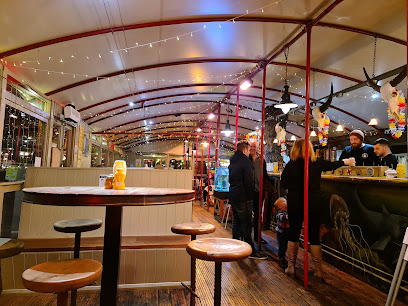
Pasture
Premium West Country steaks cooked over charcoal in a vibrant Victorian warehouse with live music and craft cocktails.
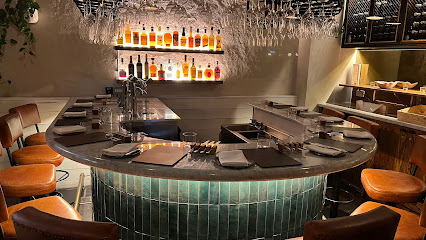
Las Iguanas - Bristol - Harbourside
Lively Latin American dining and cocktails with vibrant vibes by Bristol’s picturesque Harbourside waterfront.
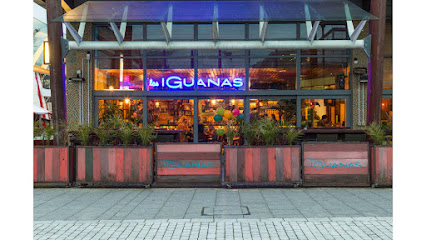
Bathampton Mill Bath
Riverside gastropub in a converted mill, serving British cuisine with river views and welcoming hospitality.
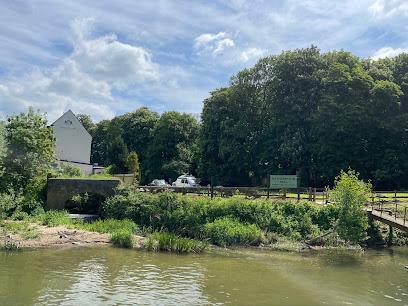
Hole In The Wall Bristol
Historic Bristol gastropub offering classic British fare, vibrant atmosphere, and a charming beer garden in the heart of Queen Square.
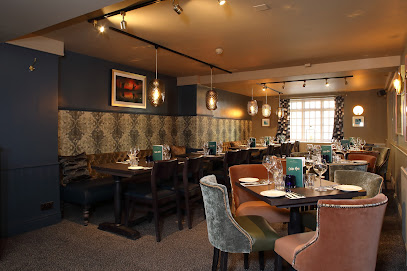
Botanist Bristol
Plant-filled gastropub celebrating seasonal British cuisine, craft cocktails, and live music in Bristol's City Centre.
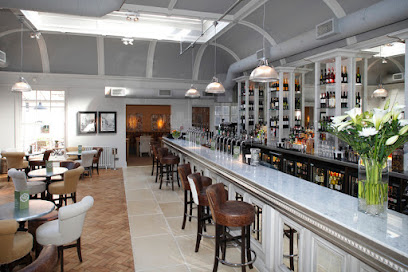
San Carlo - Bristol
Experience lavish Italian cuisine with grand interiors and generous portions in Bristol’s stylish Corn Street landmark.
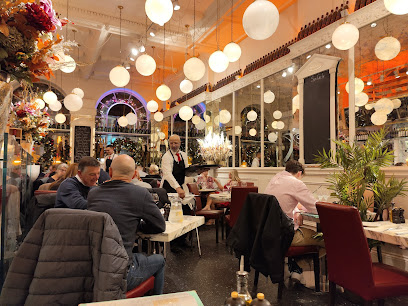
The Canteen
A vibrant vegetarian restaurant and live music venue in Bristol, blending sustainable dining with a lively community atmosphere.
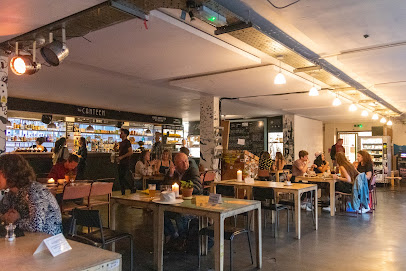
Pieminister
Award-winning British pies, piled high with mash, peas and gravy, in a lively harbourside restaurant with views of Bristol’s fountains and waterfront.
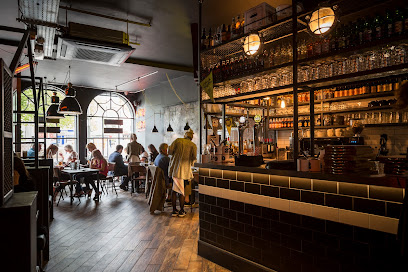
Caribbean Croft
Experience authentic Caribbean flavors and vibrant culture in the heart of Bristol’s creative Stokes Croft neighborhood.
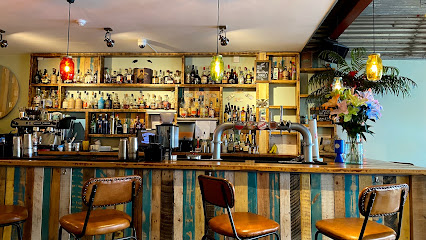
Lost & Found Bristol
Theatrical cocktails and creative cuisine in Clifton's most Instagram-worthy venue.
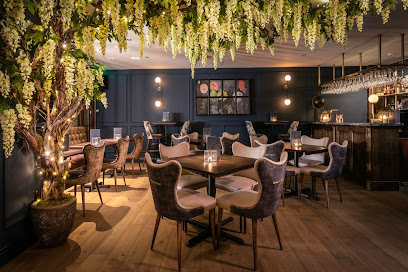
The Pump House
Historic waterfront gastropub in Bristol’s Hotwells, blending heritage architecture with fine British dining and scenic harbour views.
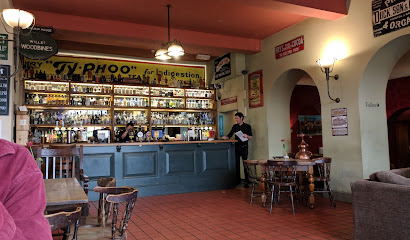
Steak of the Art
A bold Bristol steakhouse where art, design and expertly cooked meat come together in a vibrant Harbourside setting.
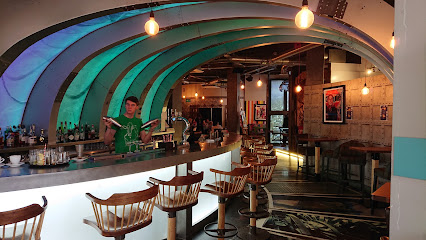
Markets, malls and hidden boutiques
Fudge Kitchen Ltd - Bath
Watch, taste and buy handmade fudge in the heart of Bath, just steps from the Abbey.
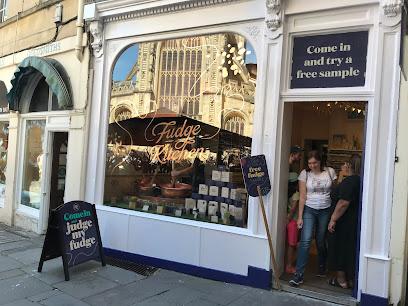
Beyond Retro - Bristol
Discover unique, hand-picked vintage fashion treasures in the heart of Bristol’s bustling Broadmead shopping district.
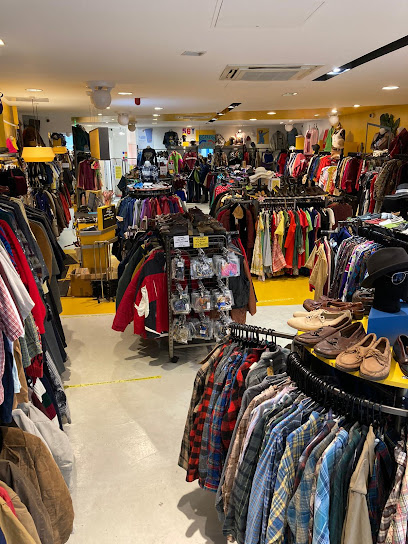
All Good Things Outlet Bristol
Discover affordable luxury and timeless fashion at All Good Things Outlet Bristol, where premium clothing gets a stylish second chance.
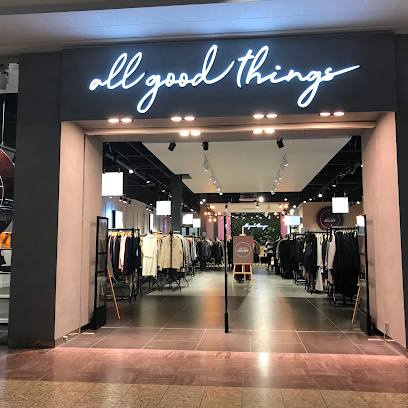
Menkind
Bristol's premier destination for unique gifts, gadgets, and toys that delight all ages.
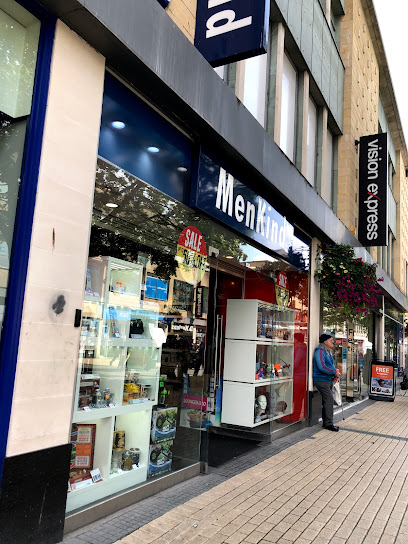
Prior Shop - Cabot Circus (Independent Superstore)
Bristol's award-winning ethical design hub showcasing 150+ independent makers in a gallery, workshop, and community space.
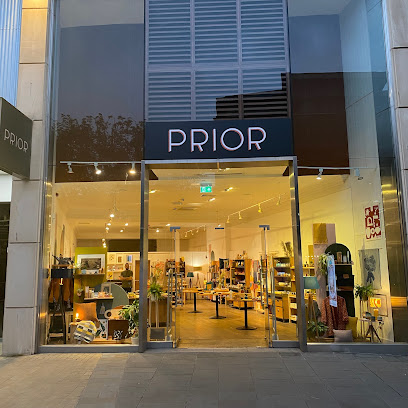
Rhubarb Jumble
Discover timeless vintage fashion and unique home treasures in the heart of Bristol’s vibrant Southville neighborhood.
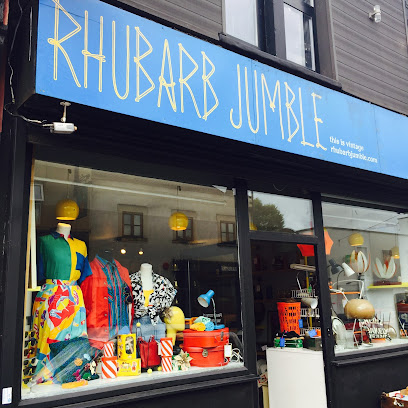
Independent Design Collective
Discover unique artisan gifts and crafts from Bristol’s vibrant local artists at Independent Design Collective in Southville.
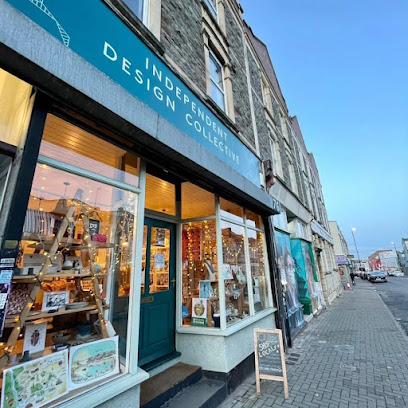
BAM Store + Space
Discover unique gifts and local artistry at BAM Store + Space, Easton’s vibrant hub for creativity and community.
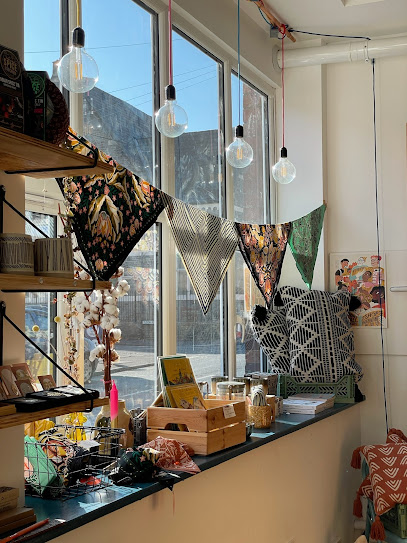
USTUDIO Shop
A Bristol concept store blending Scandinavian and Japanese design in stationery, lifestyle goods, homewares, and self-care essentials.
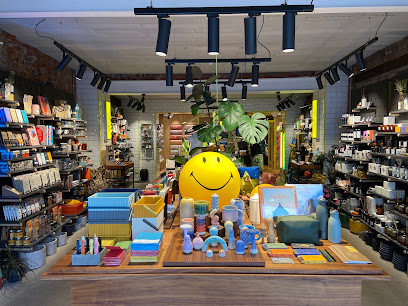
iota bristol
Discover premium hi-fi audio and unique gifts at iota bristol, a boutique gem in Bristol’s vibrant Bishopston neighborhood.
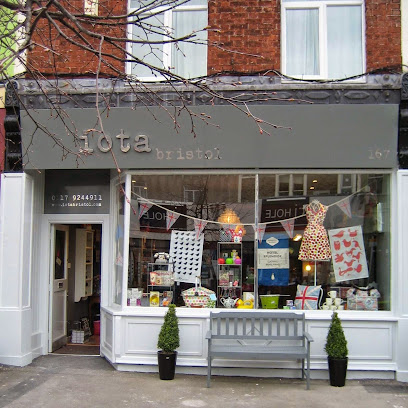
That Thing
Discover unique festival fashion and original designs at That Thing, Bristol’s vibrant independent boutique in the heart of Stokes Croft.
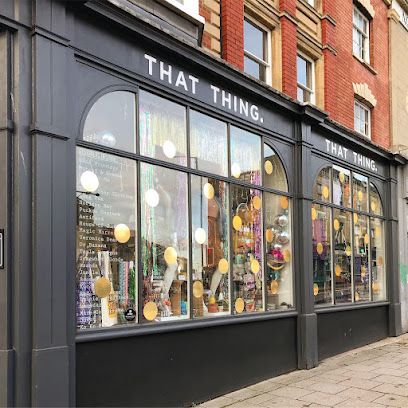
The Ethical Gift Shop
Discover Bristol’s charming boutique for sustainable, fair-trade gifts and eco-friendly treasures in the heart of Broadmead.
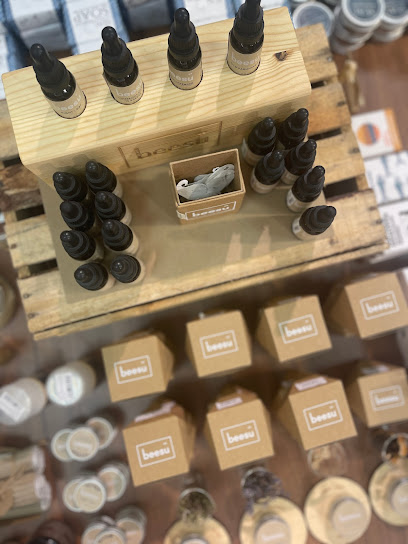
Japonicat
Discover unique Japanese gifts and charming collectibles at Japonicat, nestled in Bristol’s historic St Nicholas Market.
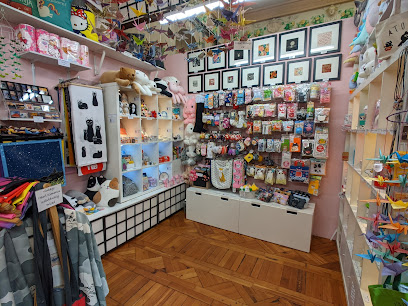
Urban Fox
Discover unique vintage and designer fashion treasures at Urban Fox, a friendly and authentic shop in Bristol’s historic St Nicholas Market.
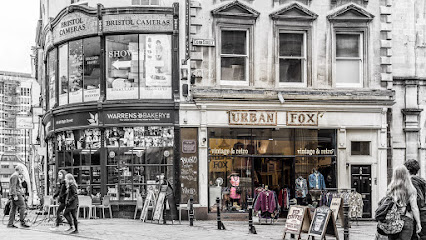
Soukous
Eclectic gift shop on Bristol's vibrant Cotham Hill, offering curated homeware and artisan treasures.
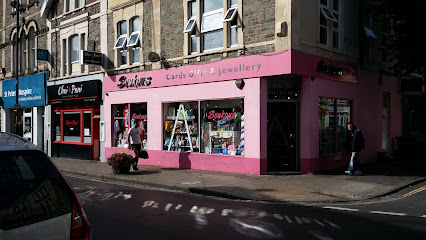
Essential bars & hidden hideouts
Small Bar
Discover Small Bar, Bristol’s vibrant craft beer sanctuary with a unique selection, cozy interiors, and a lively atmosphere on King Street.
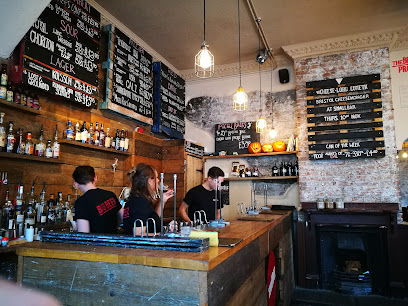
Revolution Bristol
Vibrant two-floor cocktail bar and restaurant in Bristol’s historic Old Fish Market, famed for quirky interiors and signature vodka cocktails.
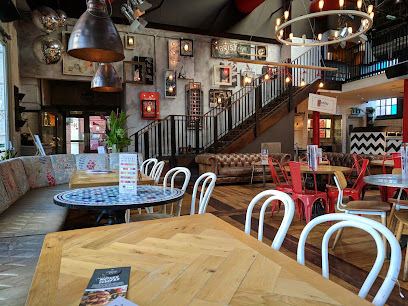
Bag of Nails
A quirky Bristol pub where hand-drawn art, local ales, and friendly cats create an unforgettable and cozy atmosphere.
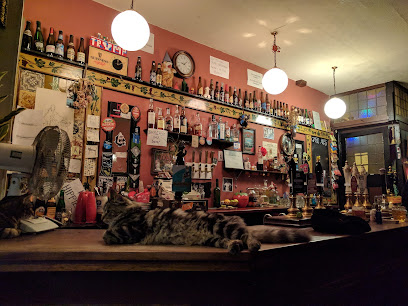
The Mothers' Ruin
A lively bar and music venue in Bristol city centre, famed for its unique vibe, live music, and affordable drinks.
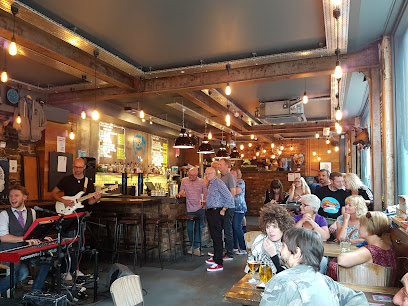
Blame Gloria - Bristol
Dive into Bristol’s wildest retro cocktail bar with themed brunches, dazzling performances, and a party atmosphere like no other.
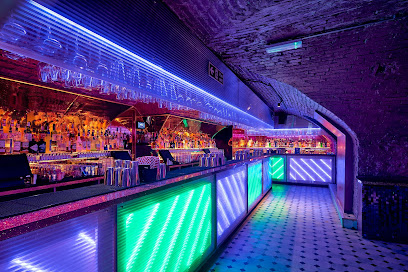
The Milk Thistle
Elegant vintage cocktail bar in Bristol offering inventive drinks, intimate ambiance, and private dining in a multi-level historic setting.
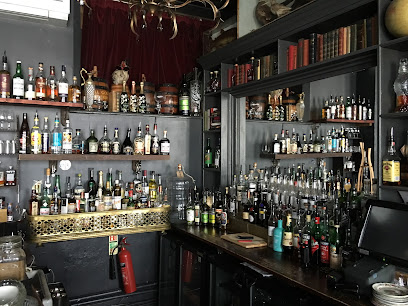
Be At One - Bristol
Lively Clifton cocktail bar with 100+ crafted drinks, unbeatable 2-for-1 happy hours, and a vibrant social vibe.
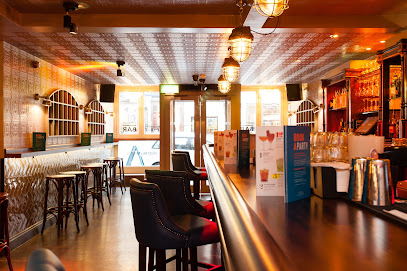
The Pipe & Slippers
A charming Bristol pub blending vintage style, excellent food, and lively local culture on Cheltenham Road.
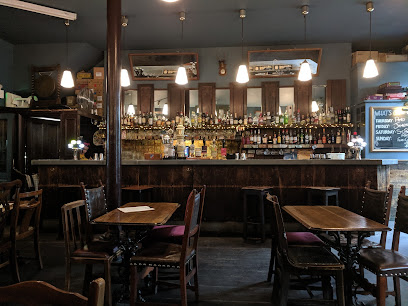
Flight Club Bristol
Experience the thrill of Social Darts® and vibrant cocktails in Bristol’s lively, carnival-inspired cocktail bar on historic Corn Street.
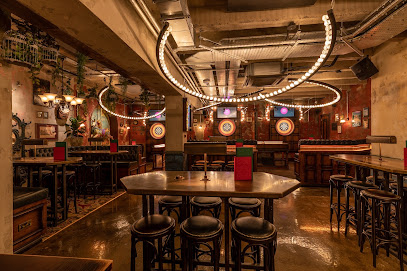
Dirty Martini - Bristol
Stylish cocktail bar in Bristol’s Old City with vibrant vibes, extensive martinis, bottomless brunches, and chic event spaces.
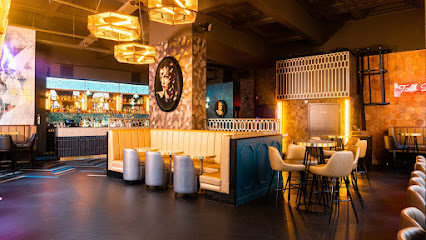
The Bootlegger
Step into The Bootlegger, Bristol’s vintage cocktail bar where handcrafted drinks and lively music meet a prohibition-era vibe.
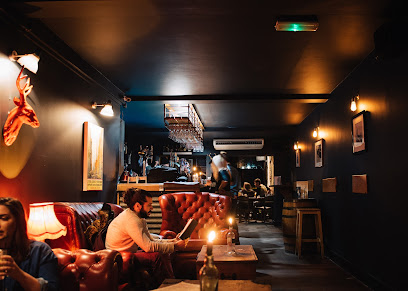
Brozen Bar - Bristol
Discover Bristol’s Brozen Bar, where inventive frozen cocktails and a cosy atmosphere create a unique, must-visit cocktail experience.
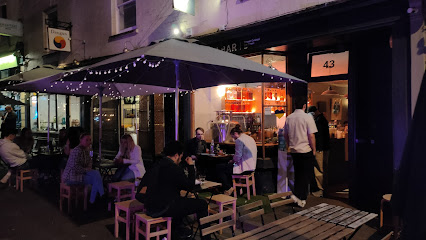
To The Moon
A bohemian bar in Bristol’s Old Market, blending creative cocktails, live music, and artsy vibes for unforgettable nights.
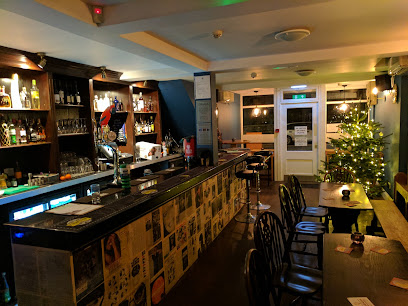
The Boardroom
A versatile bar and event space in Bristol’s city centre, blending local flavors with modern amenities for social and corporate gatherings.
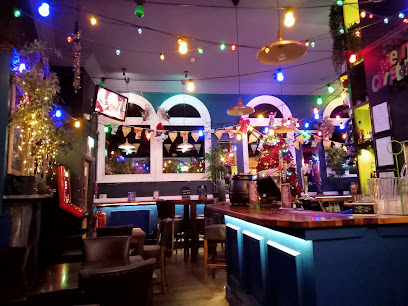
Local Phrases
-
- HelloAlright
[al-right] - GoodbyeCheers
[cheers] - YesAye
[aye] - NoNah
[nah] - Please/You're welcomeCheers/No worries
[cheers/no wo-riz] - Thank youCheers
[cheers] - Excuse me/SorryBabber
[bab-er] - How are you?Alright, my lover?
[al-right, my lov-er?] - Fine. And you?Lush. And you?
[lush. And you?] - Do you speak English?Do you speak proper?
[do you speak pro-per?] - I don't understandI ain't got a scooby
[I ain't got a scoo-by]
- HelloAlright
-
- I'd like to see the menu, pleaseI'll have a gert lush
[I'll have a gert lush] - I don't eat meatI'm veggie, mate
[I'm veg-gie, mate] - Cheers!Gert lush!
[Gert lush!] - I would like to pay, pleaseI'll settle up, ta
[I'll sett-le up, ta]
- I'd like to see the menu, pleaseI'll have a gert lush
-
- Help!Gert lush!
[Gert lush!] - Go away!Gert away!
[Gert a-way!] - Call the Police!Ring the Bill
[Ring the Bill] - Call a doctor!Ring the quack
[Ring the quack] - I'm lostI'm turnt around
[I'm turnt around] - I'm illI'm poorly
[I'm poor-ly]
- Help!Gert lush!
-
- I'd like to buy...I'm after...
[I'm af-ter...] - I'm just lookingI'm just having a gander
[I'm just hav-ing a gan-der] - How much is it?How much is that, my lover?
[How much is that, my lov-er?] - That's too expensiveThat's a bit spendy, innit?
[That's a bit spend-y, in-it?] - Can you lower the price?Can you do us a deal?
[Can you do us a deal?]
- I'd like to buy...I'm after...
-
- What time is it?What's the time, my lover?
[What's the time, my lov-er?] - It's one o'clockIt's one on the dot
[It's one on the dot] - Half past (10)Half ten
[Half ten] - MorningBristol time
[Bristol time] - AfternoonArvo
[ar-vo] - EveningDusk
[dusk] - YesterdayYestiddy
[yes-tid-dy] - TodayToday
[to-day] - TomorrowMarnin'
[mar-nin'] - 1One
[One] - 2Two
[Two] - 3Three
[Three] - 4Four
[Four] - 5Five
[Five] - 6Six
[Six] - 7Seven
[Seven] - 8Eight
[Eight] - 9Nine
[Nine] - 10Ten
[Ten]
- What time is it?What's the time, my lover?
-
- Where's a/the...?Where's the... to?
[Where's the... to?] - What's the address?What's the gert lush?
[What's the gert lush?] - Can you show me (on the map)?Can you point me in the right direction?
[Can you point me in the right direction?] - When's the next (bus)?When's the next bus, me babber?
[When's the next bus, me bab-er?] - A ticket (to ....)A ticket to...
[A ticket to...]
- Where's a/the...?Where's the... to?
History of Bristol
-
Bristol's origins can be traced back to the Anglo-Saxon period. It was known as 'Brycgstow,' meaning 'the place at the bridge.' The town began to flourish in the 11th century, largely due to its strategic location on the River Avon, which facilitated trade and commerce.
-
By the 12th century, Bristol had become one of England's most prosperous cities, largely due to its maritime trade. The city was granted a Royal Charter in 1155, which allowed for self-governance. During the medieval period, Bristol was a major trading port, dealing in wool, wine, and later, slaves. The city's merchants were instrumental in establishing trade routes with Ireland and the continent.
-
Bristol played a significant role in the Age of Exploration. In 1497, John Cabot set sail from Bristol on the ship Matthew and discovered Newfoundland, marking one of the earliest European explorations of North America. This event cemented Bristol's status as a key player in global exploration and trade.
-
From the late 17th century to the early 19th century, Bristol was heavily involved in the transatlantic slave trade. The city's merchants traded goods for enslaved Africans, who were then transported to the Americas. This dark chapter in Bristol's history has left a lasting impact on the city's cultural and social landscape.
-
The Industrial Revolution brought significant changes to Bristol. The city became a hub of industrial activity, with advancements in engineering and manufacturing. The construction of the Floating Harbour in 1809 transformed Bristol's port, allowing ships to dock regardless of tidal conditions. Isambard Kingdom Brunel's engineering marvels, such as the Clifton Suspension Bridge and the Great Western Railway, further boosted Bristol's industrial prowess.
-
Bristol was heavily bombed during World War II, resulting in significant damage to the city. The post-war period saw extensive rebuilding and modernization efforts. The city center was redeveloped, and new housing estates were constructed to accommodate the growing population. The resilience and spirit of the people of Bristol were evident during this challenging time.
-
In recent decades, Bristol has undergone a cultural renaissance. The city has become known for its vibrant arts scene, with numerous galleries, theaters, and music venues. The annual Bristol International Balloon Fiesta, one of the largest hot air balloon festivals in Europe, attracts visitors from around the world. The city's street art, notably the works of Banksy, has also gained international acclaim.
Bristol Essentials
-
Bristol is well-connected by various modes of transportation. The city is serviced by Bristol Airport, located approximately 8 miles south of the city center, with regular flights from major European cities. From the airport, you can take a taxi, bus, or shuttle service to the city center. Bristol is also accessible by train with services from major cities such as London, Birmingham, and Cardiff. The central train station, Bristol Temple Meads, is a major hub. Additionally, Bristol is well-connected by road, with the M4 and M5 motorways providing easy access for those driving.
-
Bristol offers a variety of transportation options. The city has an extensive bus network operated by First West of England and Stagecoach, covering most areas. The Bristol Ferry Boats provide a unique way to travel along the River Avon. For short trips, you can rent bikes or use e-scooters available throughout the city. Taxis and ride-sharing services like Uber are also available. For exploring surrounding areas, car rentals can be arranged from various agencies in the city.
-
The official currency in the United Kingdom is the British Pound Sterling (GBP). Credit and debit cards are widely accepted in Bristol, including contactless payments. ATMs are plentiful and can be found throughout the city. While most establishments accept card payments, it's advisable to carry some cash for smaller vendors, especially at local markets.
-
Bristol is generally a safe city for tourists, but it is always wise to take standard precautions. Areas such as St. Paul's and Easton have higher crime rates compared to other parts of the city, so it's advisable to be cautious, especially at night. Keep an eye on your belongings in crowded areas and avoid dark, isolated streets after dark. Emergency services can be reached by dialing 999.
-
In case of an emergency, dial 999 for police, fire, or medical assistance. Bristol has several hospitals, including the Bristol Royal Infirmary, which provides emergency services. Pharmacies are widely available for minor health issues. It is highly recommended to have travel insurance that covers medical emergencies. For non-emergencies, you can contact the NHS helpline by dialing 111.
-
Fashion: Do wear comfortable clothing and shoes suitable for walking. Smart casual attire is appropriate for most dining establishments and social events. Religion: Do respect all religious sites and practices. When visiting churches, dress modestly and remain quiet. Public Transport: Do give up your seat for elderly or disabled passengers. Don't put your feet on seats and avoid loud conversations. Greetings: Do greet people with a handshake. British people appreciate politeness, so use 'please' and 'thank you' often. Eating & Drinking: Do try local delicacies and traditional dishes. Pubs are an integral part of British culture, so feel free to visit one. Don't tip excessively; 10-15% is usually sufficient in restaurants.
-
To experience Bristol like a local, visit the St. Nicholas Market for a variety of food stalls and unique shops. Attend a performance at the Bristol Old Vic, one of the oldest continuously working theatres in the English-speaking world. Explore the vibrant street art, especially in the Stokes Croft area, which is known for its creative community. For a scenic view, walk across the Clifton Suspension Bridge and enjoy the surrounding Clifton Village, known for its Georgian architecture and independent boutiques.
Trending Landmark in Bristol
Nearby Cities to Bristol
-
Things To Do in Bath
-
Things To Do in Cardiff
-
Things To Do in Oxford
-
Things To Do in Stratford-upon-Avon
-
Things To Do in Birmingham
-
Things To Do in Windsor
-
Things To Do in London
-
Things To Do in Nottingham
-
Things To Do in Chester
-
Things To Do in Cambridge
-
Things To Do in Liverpool
-
Things To Do in Vale
-
Things To Do in St. Sampson
-
Things To Do in Castel
-
Things To Do in St. Peter Port
















